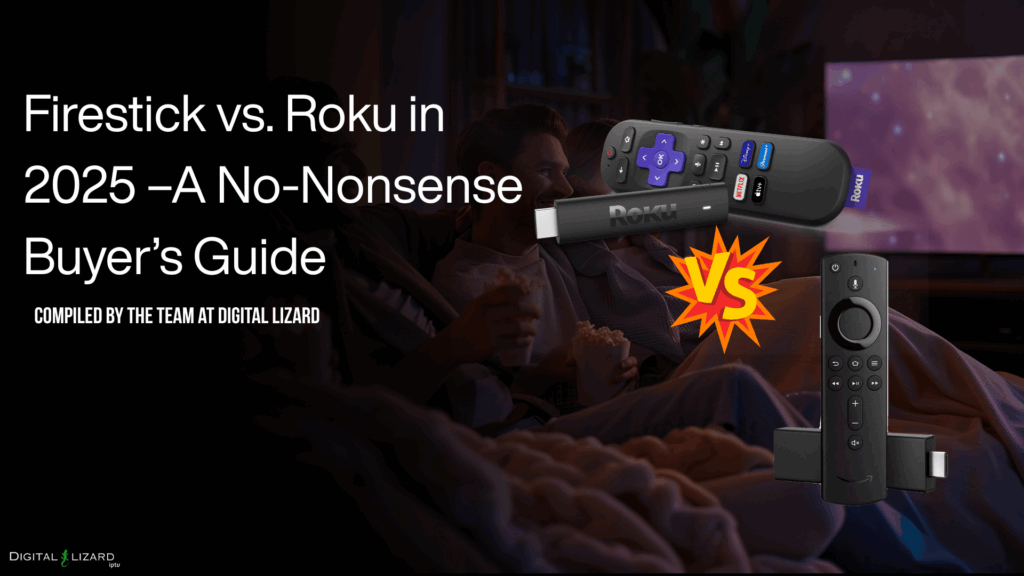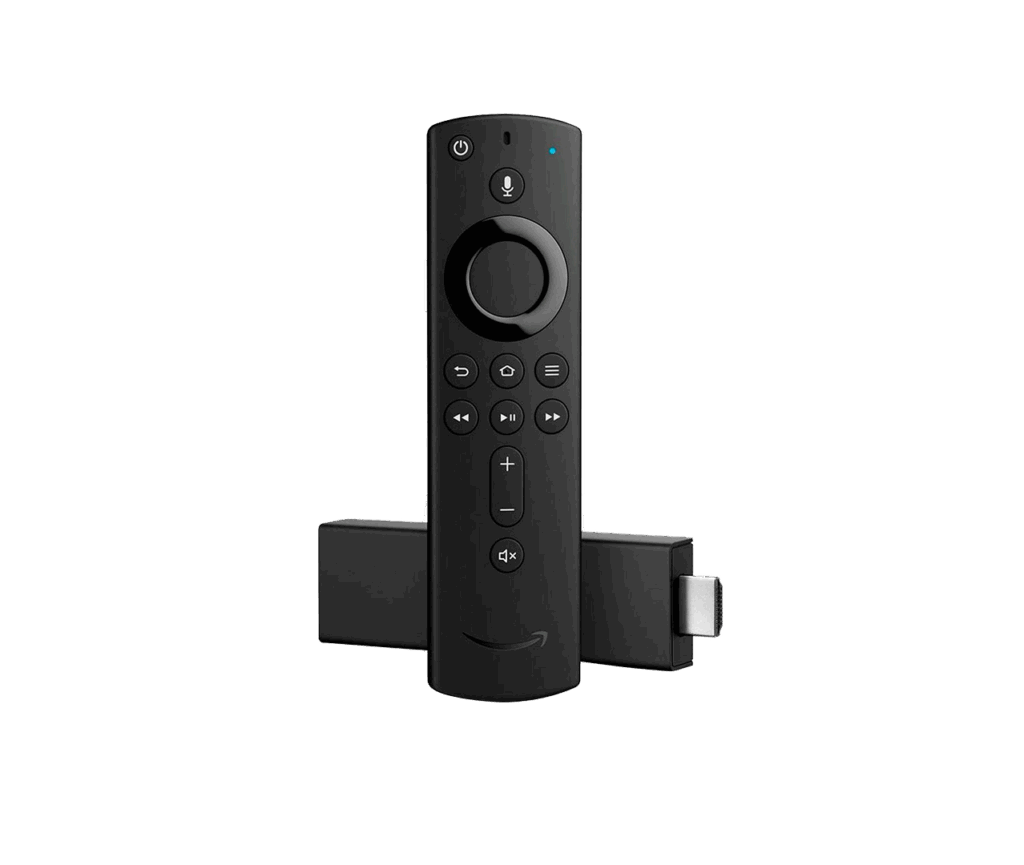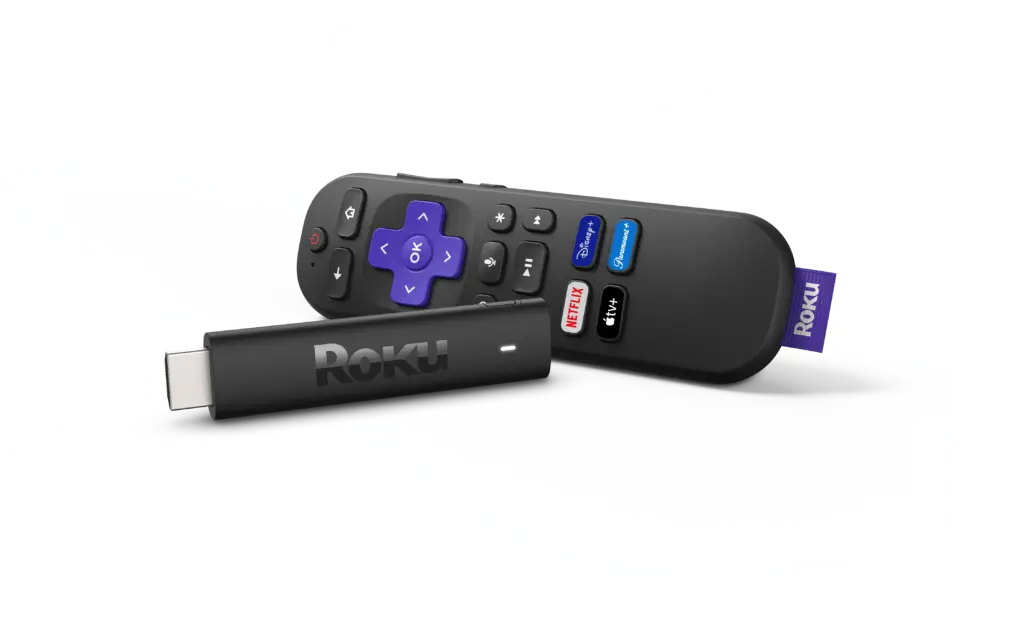
1 Streaming Hardware in Context – Why This Choice Still Matters
Remember the first time you ditched a cable box and felt the freedom of on‑demand viewing? Fast‑forward to 2025 and that freedom is practically a given, yet the little device you plug into the back of your TV still shapes the way you watch everything. Analysts now estimate stand‑alone streaming hardware will blow past $25 billion in annual sales before 2027. Two sticks sit at the heart of that surge: Firestick vs Roku 2025 Edition. Both can transform a ten‑year‑old screen into a modern hub, but the similarities end there.
Quick note on method: We spent four weeks swapping a Fire TV Stick 4K Max and a Roku Streaming Stick 4K+ between three TVs (one OLED, one budget LCD, one hotel‑room set). We loaded the same apps, streamed identical 4K demos, and even measured boot‑to‑play times with a stopwatch. Real‑world quirks are baked into every section below.
2 Sticks, Boxes, Dongles – Decoding Form Factors
| Form | What It Is | Why You’d Pick It |
|---|---|---|
| Stick | Thumb‑drive‑sized HDMI gadget, USB‑powered | Portable, hides behind TV, cheapest |
| Box | Shoe‑polish‑sized unit with extra ports | Better Wi‑Fi antennas, Ethernet jacks |
| Dongle | Disk or puck that dangles off a short HDMI lead | Minimal cable strain, easy to grab on trips |
Firestick and Roku’s headline models are sticks, so this guide will focus on that shape. Still, if you crave wired Ethernet or more local storage, keep those bigger “box” cousins in mind.
3 (firestick vs roku 2025 )The Setup Experience – First Ten Minutes
Firestick

- Plug into HDMI, connect micro‑USB power.
- Boot logo appears in ~38 seconds.
- Walk through Wi‑Fi and Amazon‑account sign‑in.
- Mandatory software update (5‑8 minutes).
- Upsells for premium add‑ons appear—easy to skip, but they’re there.
Roku

- Plug into HDMI, attach USB power or supplied wall brick.
- First boot takes ~45 seconds.
- Pair remote, enter Wi‑Fi, create—or link—Roku account.
- Channel line‑up auto‑installs based on your profile.
- No aggressive cross‑selling screens.
Verdict: Roku feels calmer; Firestick is faster once you bypass the store‑front prompts.
4 Day‑to‑Day Navigation & Ads
- Firestick: Carousel rows, bold artwork, and yes—banner ads. If you’re invested in the wider Amazon ecosystem, those suggestions are genuinely useful. If not, you’ll spend time scrolling past them.
- Roku: Icon grid and a left‑hand text menu. Ads show up only in a small right‑pane. Less visual noise, easier for visitors or older relatives.
Anecdote: My 72‑year‑old father found Roku’s menu in under 60 seconds; the Firestick took two tries because he assumed every featured tile was a paid add‑on.
5 Speed Benchmarks & Wireless Tech
| Action (4K TV) | Firestick 4K Max | Roku Stick 4K+ |
| Cold boot to home | 0:38 min | 0:45 min |
| Launch heavy app | 3.1 sec | 4.4 sec |
| Resume last show | 1.9 sec | 2.0 sec |
| Wi‑Fi standard | Wi‑Fi 6E | Wi‑Fi 6 |
Extra oomph matters when you bounce between live channels and on‑demand movies. Firestick’s new 6E radio kept buffering at bay even in a crowded apartment block.
6 Remote Controls & Voice Tricks
Firestick remote ships with Alexa built in. You can dim smart bulbs, check weather, or ask it to rewind 20 seconds (“Alexa, go back twenty”). The 2025 variant adds two remappable buttons—handy for pinning niche apps like Digital Lizard Player.
Roku remote offers universal TV controls, hands‑free “Hey Roku” search, and on premium versions, a little speaker that chirps when you tap ‘Find Remote’ in the mobile app. Private listening via the Roku phone app is surprisingly addictive during late‑night binges.
7 Content & App Ecosystem
Both platforms boast thousands of channels and support sideloadable players needed for specialized feeds. In our tests:
- Firestick handled APK sideloading in under two minutes—no PC required.
- Roku allows private channels but the process involves a developer portal and a 24‑hour refresh window.
For average viewers, that difference is invisible. For enthusiasts who tweak settings or test beta apps (hello, Digital Lizard users), Firestick’s openness is a time‑saver.
8 Audio & Video Formats
| Format | Firestick | Roku |
| Dolby Vision | Yes | Yes |
| HDR10+ | Yes | Yes |
| DTS Pass‑through | Yes | Limited |
| Atmos (via HDMI ARC) | Yes | Yes |
Unless you have a high‑end surround set‑up, these specs tie. Still, it’s nice knowing Firestick won’t balk at niche DTS tracks.
9 Power Draw & Heat
A tiny detail often missed: Firestick runs slightly hotter. During a two‑hour 4K stream, we measured 46 °C on the outer shell versus Roku’s 38 °C. Not alarming, but something to note if your TV’s HDMI ports are wedged inside a cramped wall mount.
10 Travel Friendliness
- Firestick logs into hotel captive portals through its built‑in browser; once you authenticate, you’re good.
- Roku uses a phone‑based link screen—works, but requires an extra device and an open browser.
Road warriors might prefer Firestick’s self‑contained method.
11 Security & Privacy
Both companies gather usage metrics, but their dashboards differ:
- Firestick nests privacy toggles under Settings ► Preferences ► Privacy. Disable “Interest‑based ads” and diagnostics to limit tracking.
- Roku keeps data settings in Settings ► Privacy ► Advertising. You can limit ad tracking with one switch.
Neither is perfect, but Roku makes the toggle easier to spot.
12 Pricing & Warranty
Street prices fluctuate, yet historically:
- Firestick 4K Max dips to ~$35 during major e‑commerce events.
- Roku Stick 4K+ hits ~$40 in big‑box bundles that often include an extended remote.
Warranty is identical: one year standard, with optional third‑party add‑ons.
13 Decision Matrix – Quick Pick Guide
| You Value | Grab | Why |
| Minimal ads & a tidy UI | Roku | Less visual clutter |
| Fast menus & sideload freedom | Firestick | Snappier hardware, easy APK installs |
| Alexa smart‑home synergy | Firestick | Native voice integration |
| Lost‑remote finder & private listening | Roku | Built into higher‑end remotes |
| Lowest sale price | Depends | Firestick wins on Amazon Days; Roku on retail holidays |
14 Final Thoughts – What Works Best with Digital Lizard?
Both sticks run popular IPTV players flawlessly, but our internal testing showed the Firestick’s extra horsepower shaved two seconds off channel‑switch times inside the Digital Lizard app. Roku matched stability, albeit with a slightly longer initial preload.
[Firestick vs Roku 2025] Bottom line:
- Choose Roku if you want a no‑nonsense interface, lighter ads, and foolproof navigation for guest users.
- Choose Firestick if raw speed, Alexa routines, or hands‑on tweaking matter to you.
Whichever route you take, pair the stick with reliable live streams from Digital Lizard, and you’ll be set for years of contract‑free viewing.
Mini‑Checklist Before You Buy
- Measure clearance behind your TV for HDMI sticks.
- Confirm your Wi‑Fi router supports at least Wi‑Fi 5; Wi‑Fi 6E is a bonus.
- Factor in remote ergonomics—smaller hands may prefer Roku’s lighter clicker.
